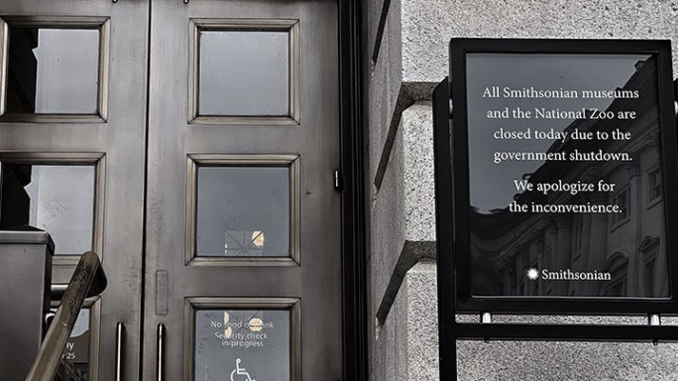
WASHINGTON – While thousands of federal workers in Arizona are going without pay this month, at least six members of the state’s congressional delegation said they will forgo their salaries during the partial government shutdown.
The lawmakers said it was important to show support for workers by refusing to take their salaries for now.
“I cannot in good faith accept my pay when our federal employees will not receive theirs,” said Rep. David Schweikert, R-Fountain Hills, in a December letter to the House’s chief administrative officer.
But one expert said that while the motivation is genuine, the act is little more than “political optics,” noting that the Constitution prevents lawmakers from giving up their salaries entirely. Mark Harkins, senior fellow at Georgetown University’s Government Affairs Institute, also noted that congressional salaries are not the only source of income for many lawmakers.
“Many of these workers are working paycheck to paycheck,” Harkins said, “are you (lawmakers) really feeling it the same way?”
An estimated 800,000 federal workers were sent home Dec. 22 when funding for their agencies ran out, after Congress and the White House failed to come to agreement on a budget that would keep them open for the rest of the fiscal year.
Related story
 Shutdown, additional requests for water could disrupt Arizona drought plan
Shutdown, additional requests for water could disrupt Arizona drought plan
That stalemate – with President Donald Trump demanding more than $5 billion for a border wall and congressional Democrats refusing to give more than $1.6 billion agreed to in earlier budget bills – affected about one-quarter of the federal government.
Many workers at those agencies were sent home without pay while “essential” workers, such as Border Patrol agents and air-traffic controllers, have had to keep working without pay.
The Center for American Progress estimated this week that about 7,300 federal workers in Arizona are affected by the shutdown. They work in agencies ranging from the Bureau of Indian Affairs to the National Park Service to the Department of Agriculture.
Essential workers have kept some services going and the state has stepped in to fund others, like keeping the Grand Canyon open, but services like E-Verify – which confirms a job applicant’s citizenship status – are shut down. And experts worry that if the shutdown drags on much longer it could start to affect food stamp benefits and income tax refunds.
Furloughed workers can apply for unemployment benefits, according to an Arizona Department of Economic Security spokeswoman, but would have to pay those benefits back if they receive retroactive pay once the shutdown ends. Essential workers cannot apply for unemployment, even though they are not getting paid.
By law, members of Congress cannot refuse their salaries. The House can hold the money but must eventually give it to the lawmaker, according to interpretations of the Constitution’s 27th Amendment and Article I, Section 6.
27th Amendment to the U.S. Constitution
Besides Schweikert, other Arizona House members deferring their salaries are Democratic Reps. Greg Stanton of Phoenix and Tom O’Halleran of Sedona, and GOP Rep. Andy Biggs of Gilbert.
“People across the country continue to feel the negative effects of the current partial government shutdown, and Arizona is among the hardest hit states by this lapse in funding,” Stanton said in his letter asking that his pay be withheld.
Both Arizona senators, Democrat Kyrsten Sinema and Republican Martha McSally, will do the same, their offices said.
Sinema has made a contribution to charity with her salary, and O’Halleran plans to announce which charities will get his salary when the government reopens, their offices said.
The others forgoing a paycheck did not announce what they would do once they collect their retroactive pay. The rest of the state’s 11-member congressional delegation did not respond to requests on their pay.
Many have been down this road before. After a shutdown in 2017, O’Halleran even introduced a bill, co-sponsored by then-Rep. Sinema, that would have delayed pay for all members if they failed to pass a budget.
That measure never got a committee hearing, but that did not keep O’Halleran from voluntarily forgoing his salary again.
“The American people expect their elected officials to do the job they are being paid to do,” he said in December, “so if we cannot reach a bipartisan consensus on a funding bill before the end of the week, I will forgo my pay during the resulting government shutdown.”
Harkins said that for those members who end up giving their pay to charity, “that holds up to scrutiny.” While the motivation for the rest is real, he said, there is no doubt that the reasoning behind their announcements was politically motivated.
“The reasoning is purely political,” he said. “It’s an optics thing.”
